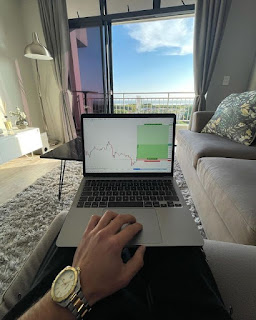Exploring The Profitability Of Forex Trading
What is Forex Trading
Forex trading, or the foreign exchange market, is the buying and selling of different currencies, mainly with the goal of making a profit. Forex trading has been taking place for centuries, but it has recently become one of the most popular investment vehicles for traders all around the world. The main advantage to trading the Forex market is the ability to take advantage of the fluctuating exchange rates, which can result in large profits for traders who were able to make the right trades.
It is important to note that Forex trading is not like stock trading, where traders can buy and sell shares in public companies. Instead, Forex trading is an over-the-counter market, meaning that it operates without a centralized exchange. Therefore, it is not heavily regulated and is generally open 24 hours a day, 5 days a week. This makes it an attractive option for traders who want to start trading in their spare time and make profits without having to dedicate all their time to market analysis.
In order to begin trading in the Forex market, traders must first open an account with a forex broker. The broker provides access to the marketplace and facilitates trades. Additionally, the broker can provide traders with a variety of trading tools, such as charts and analysis, to help them make informed decisions.
Once a trader has opened an account and funded it, they can start trading. The main goal of forex trading is to capitalize on market movements and make a profit based on the current market conditions. Traders use different strategies to try and make profits, such as technical analysis, fundamental analysis, and scalping.
It is important to note that trading in the Forex market is highly risky and is not suitable for all investors. Therefore, before beginning to trade, it is important to develop a solid understanding of the different types of risks associated with Forex trading and to make sure that you do not invest more than you can afford to lose.
Risks of Forex Trading
A key point to consider when it comes to Forex trading is the risk involved. This form of trading involves high levels of leverage, meaning that traders can access large amounts of capital with a small outlay. While this is attractive to some traders, it also involves an inherent risk because of the magnified losses that can be incurred.
It is therefore essential to understand the risks associated with Forex trading before diving in. These include:
1. Volatility: The forex market is extremely volatile, meaning that traders need to be aware of the potential for significant losses. While there is a potential for high returns, traders must be aware that some trades can go against them and it is essential to use only risk capital for trading, as positions can be liquidated quickly and at a loss.
2. Liquidity: As with any other asset, there is a degree of liquidity risk in Forex trading. A trader must be aware of the liquidity of the currencies they are trading in and must be prepared to close out of a position if need be.
3. Counterparty Risk: The forex market is an over-the-counter (OTC) market, which means that all trades are between trader and counterparty. Therefore, there is a risk that the counterparty may not be creditworthy and may not be able to fulfill their obligation to the trader.
4. Currency Risk: When trading in the forex market, traders are exposed to currency risk, which is the risk of movements in currency values. This can lead to the market value of currency pairs dropping or increasing, leading to losses.
5. Regulatory Risk: As the forex market is unregulated, there is a risk that a broker may not be following best practices or may be engaging in fraudulent activities. It is important to research and choose a broker that is regulated and has a good reputation.
Trade with a Proven System
When it comes to exploring the profitability of forex trading, one of the best approaches is to use a proven system. This is a strategy that has been tested and proven to be successful. It can help traders avoid the emotional pitfalls that can result in costly decisions and can provide a way to learn the market and become more successful. A proven system generally involves the use of trend-following strategies, technical analysis, and position-sizing strategies. It’s important to emphasize risk management as part of any successful trading strategy. This can include risk-based stop-loss orders, using proper leverage levels, and monitoring overall market conditions before entering a trade. With the right strategy, forex trading can be a highly profitable proposition.
